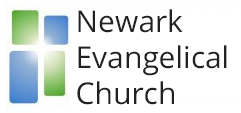From an article to a local paper:
In terms of any comments from a Christian perspective, I see two main areas of concern.
Firstly there’s the social / community aspect. Clearly there are vulnerable people behind some doors who will be terrified by Trick or Treat callers. Children are potentially vulnerable to some people behind the doors – and it’s advisable that if children do go trick or treating, responsible adults go with children – at least to be there at the end of the pathways to homes.
The very concept of threatening an unpleasant consequence if the person at home doesn’t deliver the treat is worrying. That we can get something through threat is not good. Even though it can be by mutual consent of the threatener and the threatened, the principle itself is not good. This, together with a general breakdown of respect and trust in our present society, one can see it doesn’t lead in a healthy direction. Maybe we should start a tradition of offering to do jobs for people instead of threats!
Secondly, there is the spiritual concern over the whole issue of Halloween. There is a general increase in interest in the occult or related subjects. TV programmes, films and books have multiplied on the subjects of witchcraft and wizardry. Christians must be careful to uphold the principles of free speech and people’s freedom to believe. However, there is the need to inform people so that they can make reasoned choices. On the one hand, many people innocently go to parties and join in the Halloween festivities and that’s as far as it goes. On the other hand, do people realise the origins of Halloween; do people see the bigger picture of a general increase in the interest in the horror genre and it’s occult associations?
Kevin Logan records the following statistics in Paganism and the Occult, “In a recent survey of nearly 300 fourth-formers in two Lancashire schools, we found that 87% had dabbled in the occult (44% of them with Ouija boards).” pp.33/34.
‘More‘ magazine in August 1996 reported on the findings of a Glasgow University survey. They estimated that as many as “1 in 10 people – 65% of them women – have been psychologically damaged by their (occult) experiences.”
Halloween has its origins in pagan festivals held around the end of October in England, Wales, Scotland and Ireland. People believed that, at this time of year, the spirits of dead people could come ‘alive’ and walk among the living. They thought that it was important to dress up in costumes when venturing outside, to avoid being harmed by the spirits.
People are free to choose if they want take part in pagan festivals, but do many know what they are doing? Whilst not wanting to overstate the danger for innocent party goers, we must not be unaware that witchcraft and other occult practices do go on and that people, including children, can get drawn into this whole area. In the ministry of Jesus, he was confronted with a number of people grossly influenced by the occult. He was able to release those people from this influence. The occult is clearly portrayed in the New Testament as an enemy of God and goodness. Halloween is therefore in effect a celebration of anti-Christian forces – however unwittingly done!
Having worked with a number of people with mental illness, I’ve seen how the film horror / occult genre has been a factor in their symptoms. I can see real concrete dangers that the growing Halloween interest raises. For those who have been affected by or need information, I’d recommend the Reachout Trust http://www.reachouttrust.org. Local churches should also be able to help or point people to the help they need. Certainly, at the Evangelical Church, we’d do our best to help.

